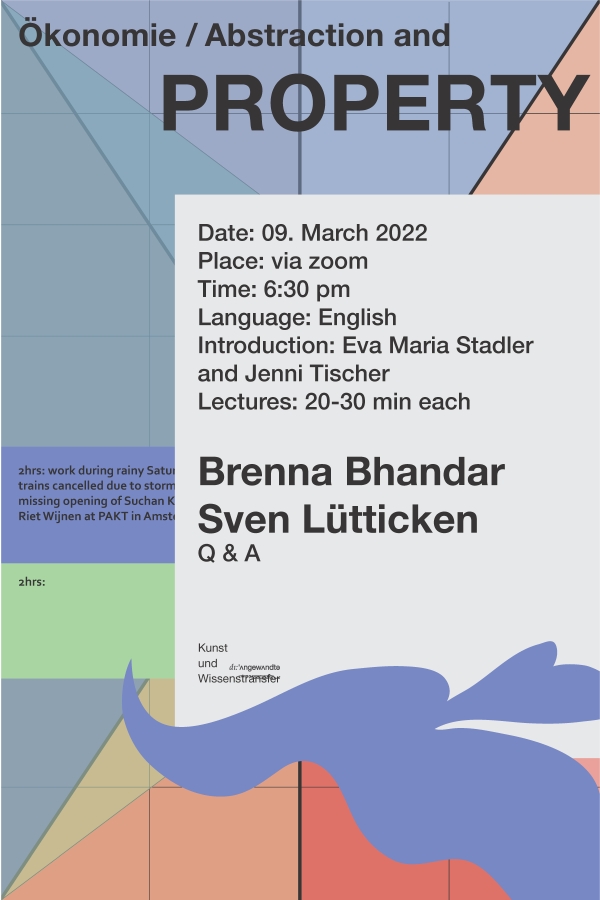Kunst
und WissenstransferThe lecture series Abstraction and Economy takes place on the occasion of the move of
the University of Applied Arts into the former Post Office Savings Bank in Vienna – a landmark of modern architecture by Otto
Wagner. It examines the tension between abstraction and economy from different perspectives of art and architecture theory
/ history as well as law, philosophy and economics.
Zoom access:
The lecture series addresses questions about the current challenges of a global economy,
with its claim to expansive growth in relation to aesthetics, technology and democracy. We ask about the role of art between
concretion and abstraction, and discuss formalistic approaches to art theory with its claim of autonomy, as well as the social
and economic aspects that critical theory takes into account in order to track down the aesthetic regime of capitalism.
The lecture series is organized by Eva Maria Stadler and Jenni Tischer, Department of Art & Knowledge Transfer
at the University of Applied Arts Vienna.
Colonial laws of appropriation and relations of ownership were created through a series of forgeries
that trafficked in the currency of legal fictions, and representations of land which bore little if any relation to the lived
practices of use and political organisation that shaped territories that would be turned into property. Excavating the commodity
logics of abstraction that emerged in conjunction with racial abstractions of colonised subjects, I will examine particular
legal techniques that forged racial regimes of ownership in settler colonies. The heady mixture of negotiation, refusal, and
resistance that shaped imperial modes of rule reveal their vulnerabilities and weaknesses, and ways of living that exceed
colonial logics of abstraction.
Sven
Lütticken:
Prices and Other Values: Plans and Councils Against the Value-Form, 1920s and 2020s
The
period following WWI and the Russian Revolution (and the failed revolutions in Germany and elsewhere) was rich in schemes
to create a post-capitalist, socialized economy. From Otto Neurath's proposals for a centrally planned economy in kind to
the council communists' attempts theorize an economy in which production and exchange were organized through socialist bookkeeping,
these projects attempted to transform capitalist real abstraction into different forms of quantification and accounting, devoid
of exploitation and surplus value. If the ensuing "Socialist Calculation Debate" was framed, and consequently won, by neoliberal
"free market" advocates such as Friedrich Hayek, today's renewal of the calculation debate has spawned proposals to use algorithmic
tools for economic planning, and to create digital councils. Then as now, these debates have an important aesthetic dimension:
how to imagine and shape the socialization of abstraction?




